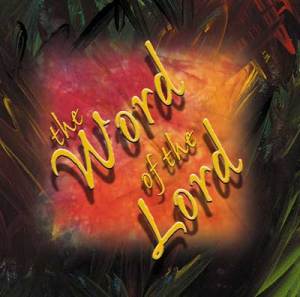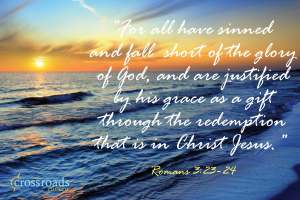DAY ONE HUNDRED AND NINETY-NINE : Amos 6 v. 1 – 7 v. 17; Romans 4 v. 16 – 5 v. 11; Psalm 86 v. 11 – 17

AMOS
Woe To The Complacent – this is a warning to the complacent in Zion, those who feel too comfortable on Mt. Samaria, noteworthy, respectable people. They are told to go and visit Calneh, Hamath and Gath, and to see if their land is better, bigger.
‘You put off the evil day, and bring near a reign of terror’ – their life of luxury has blinded them to the dangers on their doorstep.
They have spent too much time on their ivory beds and couches, fine dining, playing their harps and various other instruments, drinking and drinking fine wine, covering themselves in ‘the finest lotions’, paying no attention to the ‘ruin of Joseph’.
‘Therefore, you will be among the first to go into exile; your feasting and lounging will end.’
The Lord Abhors The Pride Of Israel – The Lord makes an oath (in His own name) declaring that He abhors Jacob’s pride, detests his fortresses, and will deliver the city up to enemies, and everything within it.
Not one person will be left in a house; everyone will perish, and the name of the Lord will not even be uttered through fear.
‘For the Lord has given the command…’
great homes will be smashed to pieces, small homes utterly destroyed,
(v. 12, God asks two questions designed to show that trying to please Him, to earn righteousness, is as impossible as horses running on craggy rocks, or oxen ploughing there)
because they have turned justice to poison, righteousness into bitterness,
claiming with pride that the conquering of Lo Debar and Karnaim was all down to their own strength.
God will stir up a nation to rise against Israel, to oppress them all the way from Lebo Hamath to the Arabah.
Locusts, Fire And A Plumb-Line – Amos tells how he was allowed to see that God was preparing a swarm of locusts to devour the second crop (after the first crop, which was always the king’s share – royal taxes). Amos could foresee the whole land stripped clean by the locusts, and cried out to God for Him to forgive and not punish little Jacob so harshly. ‘So the Lord relented’.
The Lord planned to send a judgment-fire to dry up the waters, and devour the whole land. Amos cried out to God for Him to stop, for little Jacob could not possibly survive that. The Lord relented, and said it wouldn’t now happen.
The Lord showed Amos a plumbline, and a wall that had been built true to plumb.
God used this visual to tell Amos, ‘I am setting a plumb-line among my people Israel – I will spare them no longer’. Israel was being judged to be like a dangerously leaning wall.
God announces that Isaac’s high places will be destroyed, Isaac’s sanctuaries ruined, and a sword will be raised up against Jeroboam.
Amos And Amaziah – So now, Amaziah, the priest of Bethel, rises up against Amos, sending a message to Jeroboam, king of Israel, stating that Amos is conspiring against Israel and the king, quoting Amos’s words about Jeroboam facing death by the sword and all Israel being exiled.
Amaziah confronts Amos directly, telling him to get back to Judah, and practise his ‘profession’ there (a paid prophet). He tells him to leave Bethel, the king’s sanctuary and temple.
Amos replies ‘I was neither a prophet, nor a prophet’s son, but I was a shepherd, and I also took care of sycamore-fig trees’. Amos is certainly not a paid, professional prophet. However, his testimony is that the Lord took him from his shepherding, with a message to prophesy to Israel. Amaziah is told :
– your wife will become a prostitute
– your children will die by the sword
– your land will be divided up
– you will die in a pagan country
– all Israel will be exiled, taken away from their native land.

ROMANS
Abraham – Paul reiterates that the promise came to Abraham, not as a result of his keeping the law, but because of his faith. ‘Abraham is the father of all’ (of those who are ‘of the law’, but also of those who ‘are of the faith of Abraham’). He is indeed the Father of many nations.
‘Against all hope, Abraham in hope believed and so became the father of many nations’ – the promise of a child in their old age seemed hopeless, yet Abraham believed in a God who ‘gives life to the dead’ and who ‘calls things that are not as though they were’ (i.e. creating things from nothing, making things exist).
Against all the odds, ‘he did not waver through unbelief regarding the promise of God, but was strengthened in his faith and gave glory to God, being fully persuaded that God had power to do what He had promised’. Abraham’s faith in God grew, rather than diminished, as he waited for this unlikely promise to be fulfilled. It is this very faith which is credited to Abraham as righteousness, and is an everlasting sign or example for us ‘who believe in Him who raised Jesus our Lord from the dead’.
Jesus died for our sins, and was raised to life so that we may know true forgiveness (justification), our sins dealt with, our life set free.
Peace and Joy – Jesus’ actions in His death and resurrection have justified us, who believe, and have led to :
– a life of peace with God
– a grace in which to stand (a firm footing in life)
– a hope in which to rejoice, the glory of God, His blessings upon us
– a path to victory, through suffering, perseverance, character-building, to hope
– a love poured into our hearts by the Holy Spirit (which will continue to grow to complete holiness / sanctification)
‘You see, at the just the right time, when we were still powerless, Christ died for the ungodly….God demonstrates His own love for us in this : While we were still sinners, Christ died for us.’ – the glory of the gospel, eh!
The blood of Jesus has dealt with our sin, and so we have no fear of the coming judgment.
The death of Jesus has reconciled us to God, and so we can be sure we are saved though His life.
‘We rejoice in God through our Lord Jesus Christ, through whom we have now received reconciliation’.
PSALM
My Lord, my God, teach me to walk in the ways of Your truth;
Give me an undivided heart, that I may fear Your name.
My Lord, my God, I will praise You with every part of my being, with all my heart,
I will bring glory to Your name for ever and ever.
For Your love towards me is very great; You have saved me from the punishment of death itself.
My Lord, my God, see how the arrogant attack me –
The ruthlessness of those who pay You no thought.
But You, my Lord, my God, are
compassionate
gracious
not easily angered
overflowing with love
overwhelmingly faithful.
Take a look at my life, once again, Lord.
Show me mercy, grant me strength, save me.
Give me a sign so that –
I may know Your goodness,
and my enemies may know You and be covered in shame.
My Lord, my God, You are my helper.
You are my comforter.
Thank You.











